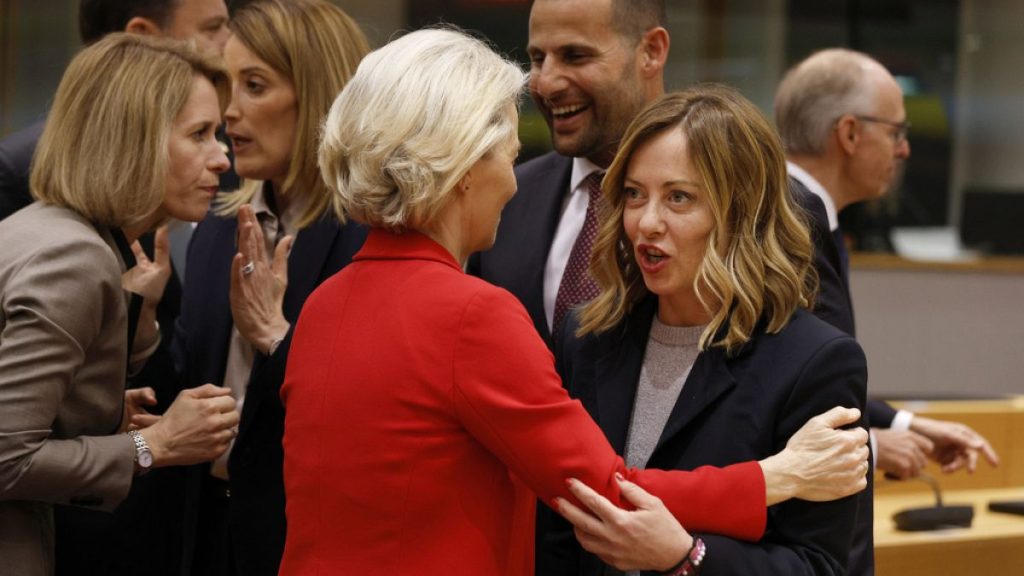Italian media are discussing the bold move made by European Commission President Ursula von der Leyen during a Eurovision debate with presidential candidates. She expressed her willingness to work with MEPs from Giorgia Meloni’s hard-right Brothers of Italy party, citing three criteria for potential partners: being pro-EU, against Vladimir Putin’s Russia, and in favor of the rule of law. This decision is seen as a risky move that could potentially isolate von der Leyen further from the centre-right EPP party.
The statement made by Ursula von der Leyen has stirred up discussions in Italian media, with many viewing it as a significant development in European politics. By indicating her openness to collaborating with members of a hard-right party, she has taken a bold stance that could have implications for her standing within the EPP party. This move highlights von der Leyen’s commitment to finding common ground with a wide range of political actors, while also raising concerns about potential ideological clashes within the EU.
The Italian prime minister fulfills three criteria set by von der Leyen for future partners, which include support for the EU, opposition to Putin’s Russia, and a commitment to the rule of law. This alignment of priorities suggests a potential basis for cooperation between Italy and the European Commission, despite any party affiliations that may create divisions within the EU. The Italian media’s coverage of this event reflects the complexity of EU politics and the ongoing challenges faced by European leaders in navigating competing interests.
While von der Leyen’s willingness to work with the Brothers of Italy party may be seen as a bold move, it also raises questions about the potential consequences for her relationships within the EPP party. As the president of the European Commission, she must balance maintaining alliances within the EU while also pursuing her policy objectives and addressing the diverse perspectives represented in the European Parliament. This dynamic illustrates the complexities of EU governance and the challenges faced by leaders in navigating political divisions and forming coalitions.
The Italian media’s analysis of Ursula von der Leyen’s statement reflects the broader debate within Europe about the future of the EU and the role of various political parties in shaping its direction. By expressing her willingness to collaborate with a hard-right party, von der Leyen has opened up a new chapter in EU politics and raised important questions about the potential consequences of her decision. This event underscores the importance of strategic diplomacy and careful political maneuvering in the context of the European Union.
Overall, Ursula von der Leyen’s statement during the Eurovision debate has sparked significant discussion in Italian media and raised important questions about the future of European politics. Her willingness to work with MEPs from the Brothers of Italy party has been met with both praise and skepticism, reflecting the complex nature of EU governance and the challenges faced by European leaders in navigating political divisions. This event highlights the need for effective leadership and strategic decision-making in the context of the European Union, as well as the ongoing debates about the role of different political parties in shaping the future of Europe.


